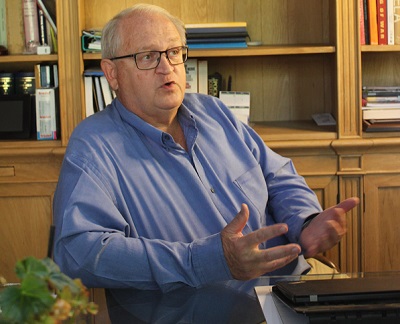

Like many other television companies worldwide, the South African Broadcasting Corporation (SABC) is finding its way in an environment where News and Entertainment companies that embrace technology reap massive rewards. The SABC strategy must remain ubiquitous distribution with technology and platform Neutrality.
SABC plus is a step into this future albeit in a closed distribution platform.
Somethings have become apparent over the years.
- There is an increased desire (from the public) for the Government to play a more muted role in the running of the company;
- Second, there is a desire for the SABC to embrace technology and align itself with consumer trends that are driving global markets.
- The funding model of an Independent Public Broadcaster needs attention or SA risks losing the Public Broadcaster to Commercial Networks that simply cannot deliver on a mandate that vaguely resembles that of the SABC.
The broadcaster recently launched its SABC+ platform(the App is titled SABC Plus while the service is referred to as SABC+). The initial reaction is that it is a welcome addition to the market. What does the future hold?
Growing numbers
The Tech Central article referenced above points out that SABC+, the streaming platform launched by the public broadcaster in 2021, is tracking towards five million unique monthly views since a December 2023 decision to remove the requirement for login credentials to access the platform.
“The SABC can confirm that SABC Plus received 4.6 million unique views from 1-20 June 2024,” said Mmoni Seapolelo, acting group executive of corporate affairs and marketing, in response to a query by TechCentral.
“As part of building and enhancing the viewer experience on the platform, user login details were deactivated on 1 December 2023,” she said, suggesting this move has served to propel viewership higher.
The article adds that, according to Seapolelo, SABC+ makes use of an advertising-funded video-on-demand (AVOD) business model. Under this model, users can access a platform and its content for free, but they watch ads as part of the viewing experience. This is the Utube model that has proved commercially successful.
Seapolelo said the SABC is exploring other revenue streams from the platform, but collecting TV licence fees from viewers is not one of them.
“Speculation about TV licence fees being applicable to the SABC+ streaming service is not true,” she said.

Image By: SABC Plus
Sports battle
The article points out that the SABC+ platform suffered from technical challenges between September and October 2023 during the Rugby World Cup tournament. The SABC at the last minute acquired sub-licensing rights to broadcast the World Cup following a dramatic battle with main rights holder SuperSport, a subsidiary of MultiChoice Group.
The agreement allowed SABC to broadcast selected games on its standalone sports channel, which is also available via SABC+. However, viewers were disappointed when the platform crashed as it couldn’t handle the volume of traffic during some of the matches.
“During the Rugby World Cup, the platform did experience some challenges. However, changes were implemented on the infrastructure and network connectivity since the 1 December 2023,” said Seapolelo. “The Africa Cup of Nations’ seamless streaming of over a million views per match in January and February this year is a testament of the resilience and an indicator that the challenges around high traffic were resolved successfully,” she said.
More innovation
While users will now have to register to use the service, because of regulations stipulated by the Popi Act, another Tech Central article points out there is still a massive gravitation towards the service.
The revamped SABC+ now as the following features:
- Improved interface
- Personalised recommendations
- Catch-up services
- Video on demand
- Voice command (for content search)
- Electronic programme guide
- Vodcasts
- Download (available on mobile only)
- Podcasts
There are no limitations to the number of simultaneous streams per household, the SABC said.
The broadcaster said it has added a new channel, called Channel Africa, [Channel Africa was always a separate International Radio station funded independently to the SABC. ( this service was modelled on the BBC worldwide Service]) with programming in Chinyanja, Swahili, English, French and Portuguese and is broadcast to communities in the African diaspora across the world.

Image By: SABC Plus
Conclusion
There are two watchpoints that the SABC needs to be wary of.
Netflix has found unabated success in how it has grown the company. Granted, this growth was helped by a global health pandemic where most of the world’s population was confined to quarters, but Netflix has experienced significant growth even outside of COVID-19. This is because the company has worked significantly on its algorithm and has a library of content that consumers want. Further, the platform has worked on a pricing model which makes Netflix affordable for any budget.
On the other hand, Disney+ is struggling to win the hearts of consumers despite a library of content that made the company a household name. Disney Plus has also just announced a major repricing of its conent. The future of the ABC network and its linear streaming service is still not resolved.
Similarly, the BBC announced that it would withdraw its streaming service (Btirbox) from South Africa because the market is less profitable than it thought. While its algorithm works the same way as Netflix, as do all streaming services, Disney+’s and Britbox’s challenges result from minimal local content for subscribers.
What does this mean for the SABC?
- Local content, telling the South African, African and the African Diaspora story will remain the most powerful driver of subscriber and downloads.
- success can be found if innovation works, and the company offers a pricing model that suits all budgets;
- consumers want local content. This should work in the SABC’s favour with its library of localised content ( a considerable investment is required to bring this to life.);
- the SABC needs to find an offering and pricing point that the public gravitates towards and expands its local content. and
- the SABC needs to find a way to make its streaming service a hit in rural areas (this may be more about internet access and bandwidth than just the content offerings).
Addressing these points will benefit the broadcaster significantly.



